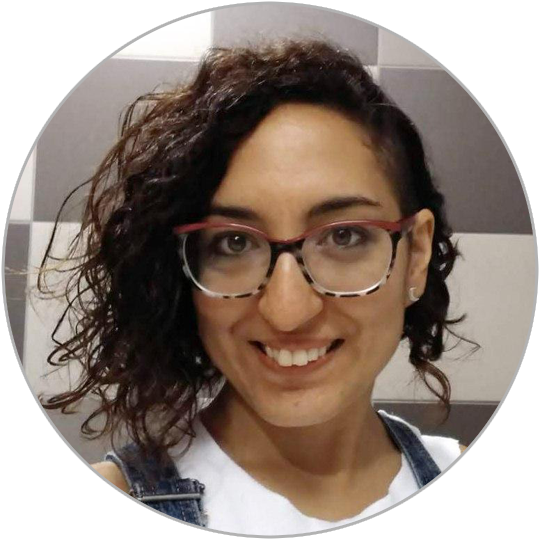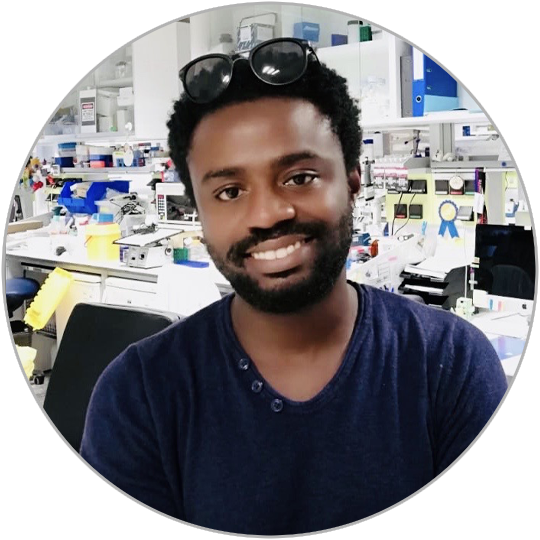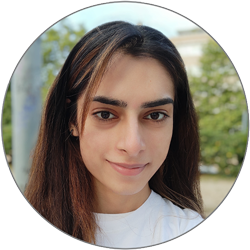Plass Group
gene regulation of cell identity
Alternative polyadenylation and other post-transcriptional regulatory processes are key mechanisms responsible to define the transcript repertoire of cells. Using a combination of high-throughput sequencing and computational approaches, we study how these mechanisms influence cellular differentiation and their contribution to the development of neurodegenerative diseases.

Mireya Plass
Group Leader, Regenerative Medicine Program of IDIBELL
Group Leader of P-CMRC
Ramón y Cajal Principal Investigator
Lab focus – Understanding post-transcriptional regulation in cell differentiation and its alteration in neurodegenerative diseases
The mechanisms that define cell identity in complex organisms are still largely unknown. Most efforts have been focused on understanding how a few transcription factors direct cell differentiation in particular circumstances, such as during development or in cancer. However, many post-transcriptional processes, which are essential for defining the final transcript repertoire in a cell, have been overlooked and their role in establishing this identity is much less understood. In the lab, we want to understand how post-transcriptional regulatory processes, and in particular alternative polyadenylation, are coordinated at the individual cell level and how they contribute to the differentiation of cells both in health and disease conditions.
By combining single-cell transcriptomics with cellular reprogramming we can characterize at the molecular level how gene expression and post-transcriptional regulation are altered in several conditions and which is their contribution to the development if neurodegenerative diseases. By differentiating iPSCs to different types of neurons and other neural related cells, we can now study the differentiation process globally and identify all the gene expression changes responsible for the differentiation of individual cell types. Additionally, by comparing the differences in the differentiation of patient-derived and healthy iPSCs cells, we can identify the altered gene pathways that explain the onset and the progression of the disease.
Why it matters
The molecular mechanisms responsible for the development of neurodegenerative diseases, such as Alzheimer’s and Parkinson’s disease, are still largely unknown. We want to investigate how the basic molecular biology mechanisms involved in the regulation of RNA are altered in neurodegenerative diseases. This research will likely contribute to identify new targets for the development of new diagnostic tools and personalized medicine interventions.
Current projects
GRANADA: Gene Regulatory Network Analysis of Alzheimer’s Disease at single-cell resolution. EASI Genomics 3rd TNA Call (2021-2023)
NEUROSTAD: Characterization of the gene and protein networks regulated by Staufen2 in neurogenesis and their alterations in AD. Marie Skłodowska Curie Actions Postdoctoral Fellowships (2021-2023)
NEUROSCAP: Role of alternative polyadenylation in neuronal differentiation and its implication in the development of Alzheimer’s disease at the single cell resolution. Proyectos de I+D+i Retos Investigación. Ministerio de Ciencia, Innovación y Universidades (2020-2023).
Job openings
Doctoral INPhINIT Fellowships Programme - Incoming. Call for applications 2022.
The Gene Regulation of Cell Identity lab is looking for outstanding candidates to apply for an Inphinit doctoral fellowship to join the lab. The selected candidate will work in a project aimed at understanding the function of RNA Binding Proteins in the control of Gene Regulatory Networks in single cells. For more information, click here.
Computational Post-doc on Single-cell Transcriptomics
The successful applicant will lead an independent research project on single-cell transcriptomics. The project will be focused on understanding how RNA binding proteins (RBPs) contribute to neural differentiation and how the transcriptomic networks regulated by these RBPs are altered in the development of neurodegenerative diseases. For more information, click here.
Keywords
Single-cell transcriptomics, post-transcriptional regulation, alternative polyadenylation, neural differentiation, computational biology, neurodegeneration
Selected Publications
R Ding, Q Wang, L Gong, T Zhang, X Zou, K Xiong, Q Liao, M Plass, L Li
Nucleic Acids Research, gkad781 scQTLbase: an integrated human single-cell eQTL database
Gutiérrez-Franco A, Ake F, Hassan MN, Chaves Cayuela N, Mularoni L, Plass M. Methanol fixation is the method of choice for droplet-based single-cell transcriptomics of neural cells. Comms Biol. 2023 May 15; 6(1), 522
Rybak-Wolf A, Plass M. RNA Dynamics in Alzheimer’s Disease. Molecules. 2021 Aug 24;26(17):5113.
Wolf FA, Hamey FK, Plass M, Solana J, Dahlin JS, Göttgens B, Rajewsky N, Simon L, Theis FJ. PAGA: graph abstraction reconciles clustering with trajectory inference through a topology preserving map of single cells. Genome Biol. 2019 Mar 19;20(1):59.
Plass M*, Solana J*, Wolf FA, Ayoub S, Misios A, Glažar P, Obermayer B, Theis FJ, Kocks C, Rajewsky N. Cell type atlas and lineage tree of a whole complex animal by single-cell transcriptomics. Science. 2018 May 25;360(6391).
Plass M*†, Rasmussen SH*, Krogh A†. Highly accessible AU-rich regions in 3′ untranslated regions are hotspots for binding of regulatory factors. PLoS Comput Biol. 2017 Apr 14;13(4):e1005460.
Rehfeld A*, Plass M*, Døssing K, Knigge U, Kjær A, Krogh A, Friis-Hansen L. Alternative polyadenylation of tumor suppressor genes in small intestinal neuroendocrine tumors. Front Endocrinol (Lausanne). 2014 Apr 15;5:46.
Members
Past Members
Nicole Grieger
Erasmus + visiting technician
Erasmus + visiting technician
Husain Managori
Graduate student
Graduate student
Mohamed Hassan
PhD student
PhD student
Natalie Chaves
Technician
Technician
Hui Chen
Visiting PhD student
Visiting PhD student
Sandra Fernández
Postdoctoral Researcher
Postdoctoral Researcher
Rafael Tur
Master student and Research Assistant
Master student and Research Assistant
Maria Varea
Master student
Master student









